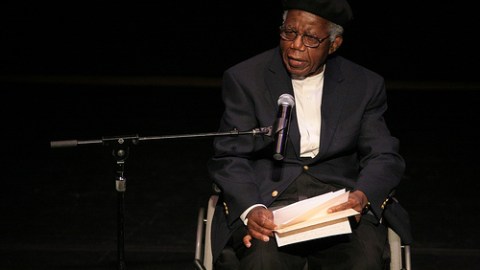Did Chinua Achebe Achieve a Global Canon?

What’s the Latest Development?
With the death of Chinua Achebe, Nigerian author and fierce critic of the Western Canon of literature, have we as a readership surpassed the political and aesthetic limitations on what we define as good art? That is the question asked by Joel Whitney, founding editor of Guernica Magazine. Beyond Achebe’s fiction, he became famous for his attacks on what he perceived as racism in Western—principally British—literature. Injecting a higher standard of morality into aesthetic criteria, Achebe mixed authors’ biographies with their literary output, erasing the distinction between a character’s point of view and its author’s.
What’s the Big Idea?
In the face of mounting criticism, firebrand Harold Bloom wrote a defense of the Western Canon in 1994, listing both Joseph Conrad and Achebe in his appendix of possible inductees. Even in Bloom’s defense of “Western” literature, it is clear that our more globalized society has thrown into doubt the kinds of geographic boundaries that long separated different schools of aesthetics. “Vain attempts at putting writers or other creative personalities in tiny boxes, or making them the symbols of a vast landscape, too often come at the expense of the far more compelling, and nuanced, mongrel—or hybrid—nature of influence.”
Read it at the World Policy Institute
Photo credit: World Policy Institute





